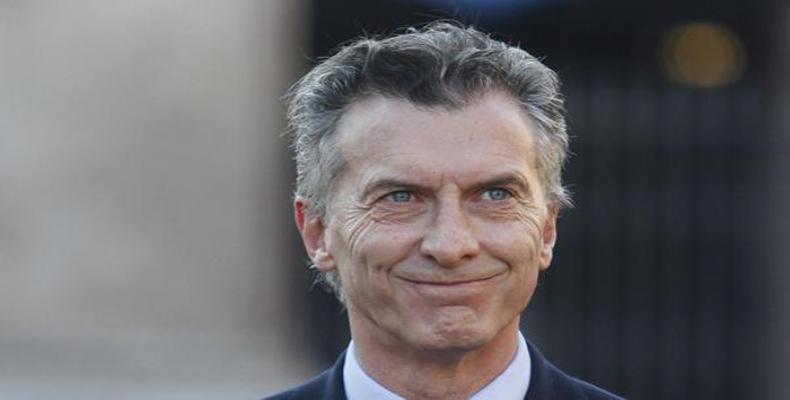Buenos Aires, June 10 (RHC)-- Argentina's Congress is set to discuss a tax amnesty bill proposed by President Mauricio Macri, which looks to provide an out to tax evaders with undeclared holdings and assets inside the country and overseas.
Macri’s proposal came out in May – a month after he was named in the Panama Papers leak as having at least eight tax haven companies founded and run by friends and relatives who used the Panamanian Mossack Fonseca law firm.
The country's opposition has criticized the law – which is actually being discussed as part of a pension reform package – saying Macri is trying to benefit himself from this "tax whitewash bill" and experts add that the government may also wants to imprison journalists who identify tax dodgers.
However, the government said the amnesty is designed to fund pensions, with funds raised through the amnesty going towards retirement payments of over 300,000 pensioners. According to government figures, up to $20 billion could be raised – a number that is being rejected by some quarters.
Former President Cristina Fernandez took to social media to criticize the proposal, calling it a “legislative snafu" that would “destroy the current pension system." Cristina said: “What caught my attention was the hodgepodge of themes: money laundering, retirees, judgments, changes on the retirement ages... a real legislative snafu.”
Fernandez pointed out that the package proposes to "eliminate progressive taxation (on personal goods and financial assets) for those who have more,” while also creating a “gag law” on journalists covering allegations of corruption and tax evasion in Argentina following the publication of the Panama Papers.
Fernandez's government nationalized the pension system in 2008, after the system was privatized in the 1990's. Macri's government, which has implemented a number of neoliberal policies, is looking to re-privatize the pension system while also increasing women's retirement age from 60 to 65.


